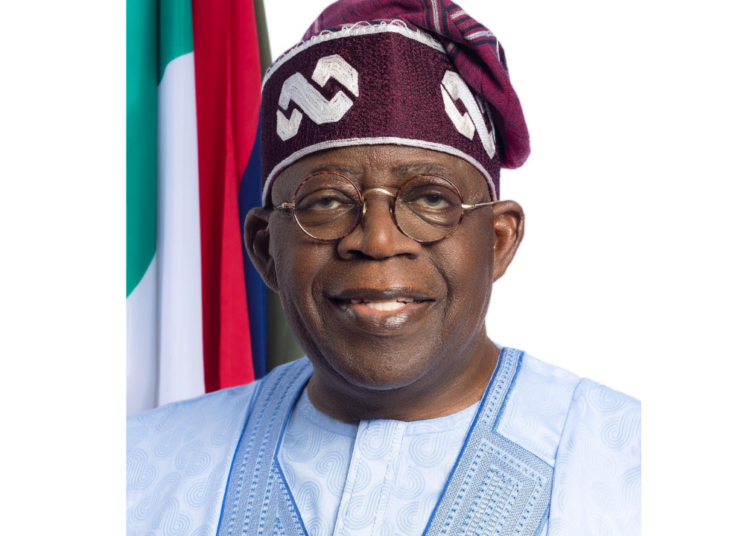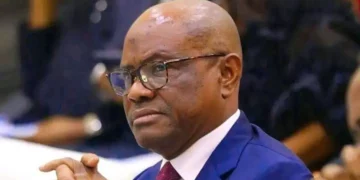In spite of declarations by the government of President Bola Tinubu that it will not continue with the massive borrowings of the previous government to fund its budget deficits, there are early indications that the new government is sticking to the controversial policy.
In the coming days, the Debt Management Office (DMO) is planning to raise up to N1.2 trillion in debt through re-issuance of federal government (FGN) bonds. It had spent N1.195 trillion on paying interests on the FGN bonds in the first six months of this year.
The DMO, in its bond issuance calendar for the last quarter of the year, said it plans to raise between N960 billion and N1.2 trillion in three months. The amount is expected to be raised between October, November and December this year.
The DMO had raised N742.557 billion for the rehabilitation and construction of 4,000 kilometres of road projects and bridges across Nigeria’s six geopolitical zones and the Federal Capital Territory through the issuance of Sovereign Sukuk.
However, officials of the Tinubu administration are yet to come with an economic road map of their own and are instead relaying a message that the current budget was presented and signed by the Muhammadu Buhari government, which had initially projected some N8.8 trillion in borrowings to fund the deficit in the 2023 Budget.
LEADERSHIP Sunday recalls that the Buhari administration had borrowed about N23 trillion from the Central Bank of Nigeria (CBN), which was later converted to long term bonds. At a time under Buhari, over 90 percent of national revenue was spent on debt servicing.
The debt service to revenue ratio is also close to 75 percent, raising serious questions about Nigeria’s fiscal stability should the present government fail to put a cap on government borrowing.
The total federally distributable revenue in the 2023 budget is estimated at N11.09 trillion, while total revenue available to fund the 2023 federal budget is estimated at N9.73 trillion. This includes the revenues of 63 government-owned enterprises.
The total fiscal operations of the federal government was expected to result in a deficit of N10.78 trillion. This represents 4.78 percent of estimated GDP, above the three percent threshold set by the Fiscal Responsibility Act 2007.
An official of the ministry of finance who spoke with LEADERSHIP Sunday under the condition of anonymity justified the new borrowings by insisting that they were continuing to implement a budget from the previous government, pointing to a speech by former President Buhari while presenting the 2023 budget in late 2022.
Buhari said, “As envisaged by the law, we need to exceed this threshold considering the need to continue to tackle the existential security challenges facing the country.
“We plan to finance the deficit mainly by new borrowings totalling N8.80 trillion, N206.18 billion from privatization proceeds and N1.77 trillion drawdowns on bilateral/multilateral loans secured for specific development projects/programmes.”
Officially, the current administration has not said anything to the contrary. Even though it promised to cut borrowings, the federal government has gone ahead with borrowing to fund the deficit through the Debt Management Office.
At the presentation of the budget breakdown earlier in the year, former minister of finance, budget and national planning, Zainab Ahmed, said the removal of gasoline subsidy would free up the revenue space for government.
The current administration said it removed the subsidy because it was no longer sustainable. It also said it did so to confront the subsidy scam, taking cognizance of the need to provide safety nets to cushion the attendant effects on some segments of society.
Oil revenue is projected at N1.92 trillion, non-oil taxes are estimated at 2.43 trillion, while FGN independent revenues are projected to be N2.21 trillion. Other revenues total N762 billion, while the retained revenues of the GOEs amount to N2.42 trillion
The budget has an oil price benchmark of $70 per barrel. Since the passage of the budget, oil prices have averaged $90 to $100, making more oil revenues available to the government to finance fiscal liabilities.
In the first month of the subsidy removal, the government announced a record oil revenue of N1.9 trillion.
And with an exchange rate of N435.57/$1 in the budget, the government is also making over 100 percent gain in the exchange rate differential. The green back currently trades for between N900 and N1000/$1.
With the dual challenge of escalating debt servicing obligations and the urgent need to augment its revenue streams, the mounting debt burden is raising concerns about the country’s fiscal stability.
To address this, experts and officials are calling for an expansion of the tax net and improved revenue management.
In the first six months of 2023, the federal government, through the DMO, had spent N1.195 trillion on paying interests on bonds, bringing the total domestic debt service to N1.44 trillion in the six-month period.
Total domestic debt stood at N48.34 trillion as of June 30, 2023 with FGN bonds accounting for 86.87 per cent of the total figure. FGN bond obligations as of the first half of this year stood at N41.972 trillion.
According to the latest report from the DMO, Nigeria’s total debt servicing expenditure reached N2.34 trillion over a six-month period. In the second quarter of 2023, Nigeria’s spending on debt servicing slowed down, amounting to N849.58 billion. This marked a notable 43.04 per cent decrease from the N1.49 trillion spent on debt servicing in the first quarter of 2023.
DMO data reveals that, in the first quarter of 2023, Nigeria allocated N874.13 billion for servicing its domestic debt and $801.36 million (equivalent to N617.35 billion) for servicing external debt, totaling N1.24 trillion.
However, during the second quarter of 2023, Nigeria’s expenses for domestic debt servicing amounted to N565.88 billion, while external debt servicing costs reached $368.26 million (equivalent to N283.7 billion), resulting in a combined total of N1.24 trillion, based on data obtained from the debt office.
The DMO applied an exchange rate of $1 to N770.38 for external debt servicing.
Unlike the previous quarter when Nigeria allocated approximately $131.13 million for servicing Exim Bank of China loans, there were no funds dedicated to servicing Chinese loans in the first quarter of 2023, as reported by the DMO.
In the previous administration of President Buhari, Nigerians often raised concerns over its massive borrowings, but it replied that it was borrowing within acceptable thresholds.
The International Monetary Fund (IMF) also expressed concerns over Nigeria’s rising debt servicing costs. Escalating borrowing costs and uncertainties in the global economic environment have made it challenging for Nigeria and similar nations to secure financing from international markets.
IMF deputy divisional chief, Wenjie Chen underscored the need for increased taxes to boost revenue and reduce debt. Chen pointed out that Nigeria, along with other frontier markets, had been largely excluded from the Eurobond markets since the spring of 2022, restricting its access to international funding sources.
As highlighted in the IMF’s April 2023 Fiscal Monitor report, entitled “On the Path to Policy Normalisation,” Nigeria’s debt is projected to continue rising, underscoring the urgency of implementing measures to enhance revenue generation and ensure fiscal stability.
In 2022, Nigeria spent a staggering 96.3 percent of its revenue to service its debt, a figure that sent shockwaves throughout the nation’s financial sector.
The director-general of the Budget Office of the Federation, Ben Akabueze, highlighted the alarming situation, noting that Nigeria’s borrowing capacity was dwindling rapidly due to its inability to meet its debt servicing obligations.
Akabueze’s warning was clear: when a country’s debt service ratio surpasses 30 percent, it enters a precarious financial territory. Nigeria, unfortunately, appears to be hurtling toward a debt service ratio approaching 100 percent, signifying an acute financial crisis.
Past president of the Chartered Institute of Taxation of Nigeria (CITN), Adeshina Adedayo, stressed the need for the expansion of the tax net in the country in the quest for expanding the revenue base of the country.
Noting that expanding the tax net would help with the generation of more revenue, he said utilisation of the revenue gathered and productive accounting is also important.
He also stressed that tax education will have an ample effect on tax compliance.
For the CEO of Promotion of Private Enterprise (CPPE), Dr Muda Yusuf, the federal government budget had further amplified the troubling fiscal outlook for the economy, saying expenditure continues to accelerate amid consistent weak revenue performance.
According to him, a number of issues need to be addressed to achieve the nation’s fiscal sustainability aspiration, like government owned enterprises managing huge economic assets justifying the value of assets at their disposal and oil revenue performance doing much better given the prevailing global oil price.
“New funding models need to be urgently explored for adequacy and sustainable funding. Current budgetary provisions need to be augmented from new innovative funding windows. The same is true for road infrastructure financing. The road fund bill needs to be revisited to ensure sustainable funding of road infrastructure across the country. Budget funding for roads cannot guarantee quality road infrastructure for a country of over 200 million people,” Yusuf said.
He stressed the need for the country to operate as a true federation which it claims to be, saying the unitary character of the country is making it difficult to unlock the economic potential of the sub-nationals and perpetuating the culture of dependence on the federal government.
“It is necessary to scale down the size of government and cost of governance. Fiscal sustainability is driven by both cost and revenue. Therefore managing the major drivers of cost and revenue is imperative. As far as possible, the government should push back in sectors or activity areas where the private sector has capacity to deliver desired outcomes.
“We should see more concessioning and privatisation at all levels of government. This would allow for the infusion of more private capital into the infrastructure space. We need to address the fuel subsidy conundrum at some point as it clearly is not sustainable,” he said.
Speaking on the debt situation, the director-general of Lagos Chamber of Commerce & Industry (LCCI), Dr. Chinyere Alumona, explained that the exclusive use of debt to finance deficits got Nigeria into a situation where it cannot keep the revenue it is earning today as it uses the bulk of the revenue to cover interest payments.
Alumona advocated massive equity financing as the federal government’s best way forward.
“Nigeria should henceforth use equity financing as an exclusive way of funding budget deficits. If we embrace equity financing, we do not have to make huge interest payments, and we can use some of the proceeds of our equity issuance to make the fiscal situation more sustainable and rekindle much-needed confidence in our economic and fiscal resilience,” she said.
On his part, a stockbroker with Calyxt Securities Limited, Tunde Oyediran proposed the capital market provides a variety of financing instruments and investor categories which could lead to a larger pool of funds than other financing options.
“They can also offer funding for riskier activities, and by doing so, contribute significantly to innovation in an economy,” he said, adding the capital market is a critical pillar to long-term fund mobilisation needed for capital formation to fast-track economic growth and development in the country.





